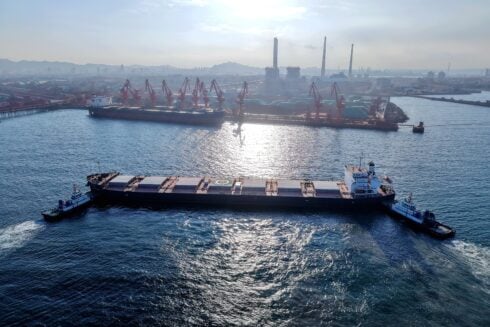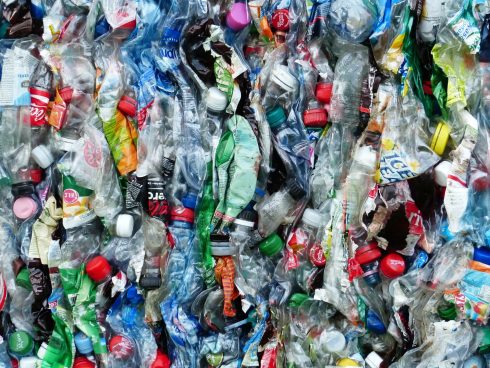THE United States has expelled Spain’s largest port from a crucial shipping route connecting America with Asia.
The Port of Algeciras, Spain’s busiest cargo hub handling over 100 million tonnes annually, was unceremoniously dropped from a strategic container route linking US East and West coasts with major ports in Japan, South Korea, China and India.
The move threatens to deliver a sharp blow to the country’s maritime trade – with neighbouring Morocco being the main beneficiary.
The shipping agreement, which came into force in February 2025, was abruptly amended in June to exclude Spain entirely, with cargo now being diverted to Morocco’s Tanger-Med port instead.
READ MORE: Spain to finally recognise Gibraltar airport — and unlock ‘up to 20,000 passengers daily’

While shipping giants American President Lines and Maersk cite ‘operational reasons’ and cost-cutting measures for the change, the decision comes amid a bitter investigation by the US Federal Maritime Commission into Spain’s refusal to allow two American-flagged container ships to dock in Algeciras last November.
The vessels – Maersk Denver and Maersk Seletar – were denied access over suspicions they were carrying military supplies destined for Israel, forcing them to divert to other ports.
This triggered a formal US probe into what Washington sees as discriminatory practices against American commerce.
Commissioner Rebecca F Dye revealed in testimony to the US House of Representatives on July 22 that the Commission will publish its findings on Spanish port practices later this year.
She criticised Spain’s official response as focusing ‘more on sovereignty than reasons for denying port access.’

The maritime spat is just the latest flashpoint in deteriorating US-Spain relations under Pedro Sanchez and Donald Trump’s governments respectively.
Washington is also investigating Spain’s contract with Chinese tech giant Huawei to handle sensitive government data, viewing suppliers from China in strategic sectors as a potential security threat within the Western alliance system.
Adding fuel to the fire, Spain’s decision not to purchase F-35 fighter jets has been interpreted in Washington as a snub that could jeopardise cooperation over the crucial shared military bases at Rota and Moron, which are vital for NATO operations and US deployments in the Mediterranean and Africa.
There have already been calls to relocate the bases to the US’ ‘more reliable’ ally in the region – once again, Morocco.
The FMC’s investigation could lead to sanctions if Spain is found to have violated shipping regulations.
Potential penalties include fines of up to two million euros per voyage for Spanish-flagged vessels, entry bans to US ports, and broader restrictions on bilateral trade.
Such measures would severely impact the 750,000 containers that move between the two countries annually – representing 4% of Spain’s total port traffic in 2024 but carrying high-value goods and industrial components crucial to supply chains.
The exclusion from the shipping route already forces cargo to take longer, more expensive alternative routes, undermines the competitiveness of Spanish exports, and threatens to permanently shift transatlantic trade patterns away from Spanish ports.
READ MORE: Revealed: New favoured drug route for ‘narcos’ in southern Spain – as police plead for more weapons
Spain’s official response to the US investigation, sent in February, defended the port access denials as necessary to prevent transit of weapons that could be used for ‘genocide, crimes against humanity, grave breaches of the Geneva Conventions, attacks on civilian targets, or other war crimes.’
While not explicitly naming Israel, the implication was clear.
The Spanish government’s response, drafted by a law firm, asserted Spain’s sovereign right to control port access. It also encouraged operators to seek alternative routes – advice shipping giants have now taken to heart.
For Algeciras, one of only four European ports alongside Rotterdam, Antwerp and Hamburg to handle over 100 million tonnes annually, the exclusion represents a potentially catastrophic blow to its status as a key Mediterranean hub.
The broader implications extend beyond shipping logistics to Spain’s geopolitical positioning, as the country finds itself increasingly isolated from its traditional Western allies over its stance on Israel’s assault on Gaza and its growing ties with China.
As alternative routes through Morocco and other non-EU ports become entrenched, Spanish ports risk being permanently sidelined from crucial transatlantic trade flows, which would a long-term blow to the country’s economic competitiveness and strategic importance.
Click here to read more Algeciras News from The Olive Press.








